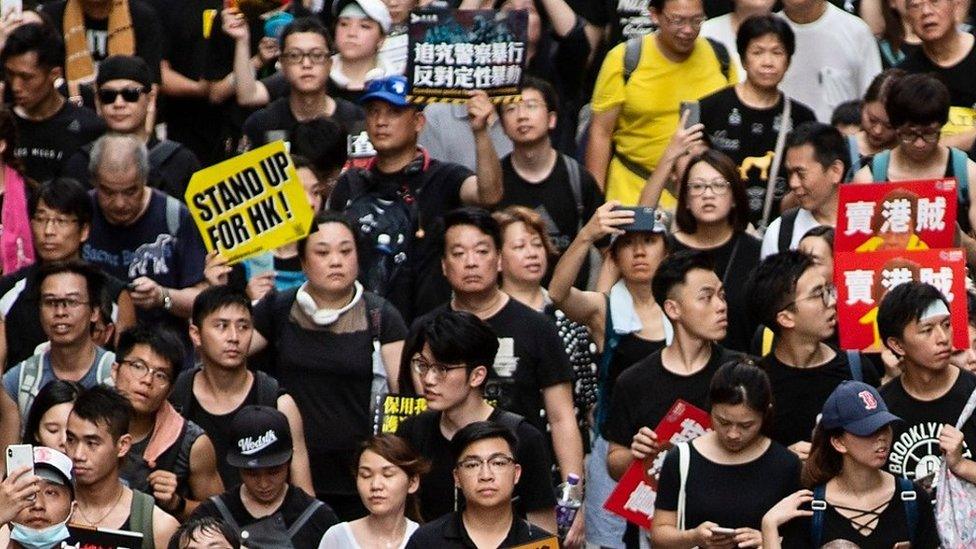Hong Kong protests: Why are there protests against China and how did they start?
- Published
- comments
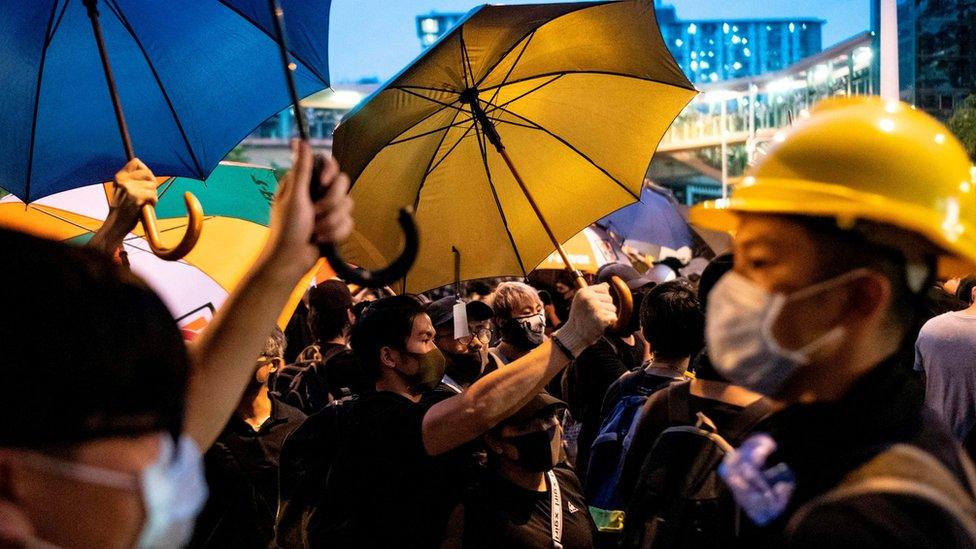
There have been lots of protests in Hong Kong in the last few years
Pictures of protests in Hong Kong have been a common sight over the last couple of years, but why are citizens protesting and what is the government in Hong Kong, and in China, doing about it?
There have been protests in Hong Kong since early 2019. They originally started over a planned change in the law called the extradition bill.
The bill, or law, would have meant that people accused of crimes against mainland China could be sent there from Hong Kong to go on trial.
Even though that law was formally scrapped later that year, people in Hong Kong were angry about China's involvement in how the territory is run.
So what is the history between China and Hong Kong? Why is there tension? And why are there new protests? Here's everything you need to know.
What does China have to do with Hong Kong?
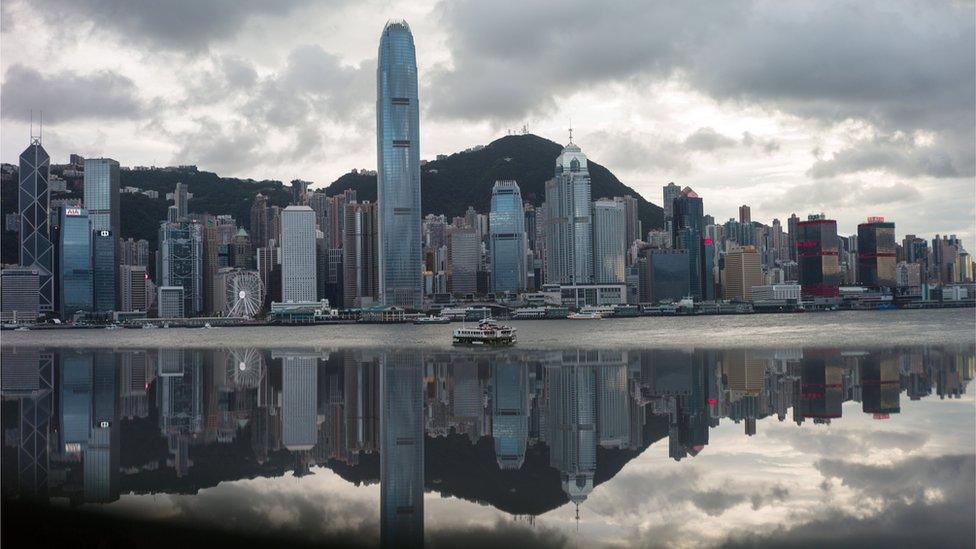
Hong Kong and China - 'one country, two systems'
Hong Kong is very different to other Chinese regions.
In 1898, Great Britain leased, or rented, Hong Kong from China for 99 years.
It was a busy trading port and manufacturing hub, and was popular with migrants and people escaping poverty or mistreatment in mainland China.
As the deadline for 99-year-lease approached, Britain and China began talks on the future of Hong Kong - the communist government in China wanted all of it to be returned to Chinese rule.
Communism is based on the idea that everything - all property and wealth - is owned and shared by all people and everyone works to make that shared wealth grow.
It is the opposite to capitalism where individuals make money for themselves and there is private ownership of things like houses, cars and businesses.
The two sides made an agreement that would see Hong Kong return to China in 1997 under the idea of, "one country, two systems".
This basically meant that while Hong Kong would become one country with China, it would enjoy "a high degree of autonomy" for 50 years - which means Hong Kong could have its own laws and rules within this time.
Hong Kong now has its own legal system and borders, and free speech and freedom of the press are protected.
What happened in 2019?
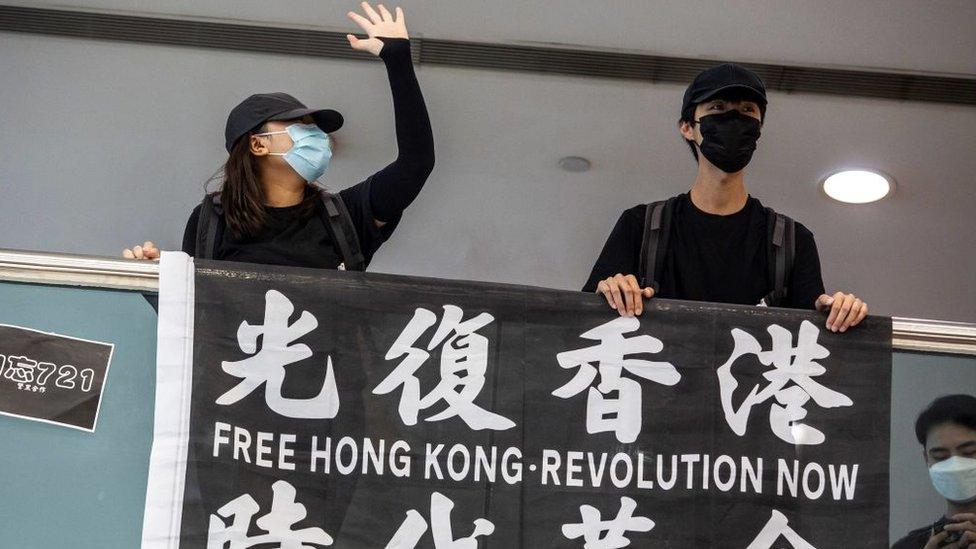
In 2019, demonstrators in Hong Kong were protesting against a change in the law that could have seen citizens sent to China to be tried for political crimes.
It was called the extradition law. These protests were attended by hundreds of thousands of people - and sometimes they became violent as protesters and police clashed.
The protesters were concerned that anyone accused of crimes under Chinese law could be taken to the mainland where they could receive an unfair trial. Demonstrators were also fearful of possibly facing violent treatment from officials in mainland China.
The law was eventually scrapped in the autumn of 2019, but it led to many people in Hong Kong getting angry. They felt that China was trying to control the territory and interfere with how they live.
Now China is proposing to introduce a new national security law, that would make it illegal to undermine China's authority in the region.
Details are a little unclear currently but critics are concerned the new rules could be used to crack down on people's rights and target anyone considered a political activist who doesn't agree with China.
Chinese officials say these new laws will allow Chinese authorities to work in Hong Kong, "to safeguard national security in accordance with the law". They believe the new law is required to help fight "terrorism" and violence in Hong Kong.
Why is there a problem now?
Whilst Hong Kong still enjoys freedoms that don't exist in mainland China - these are believed to be under threat by many people in Hong Kong.
A senior Chinese official called Li Zhanshu told politicians in Beijing that China, "will uphold and improve the 'one country, two systems' policy,"
However, rights groups have accused China of meddling in the way Hong Kong is run. They say that is why some Hongkongers were so worried about the extradition bill in 2019, and why they're concerned about the new law in 2020.
What is the new law?
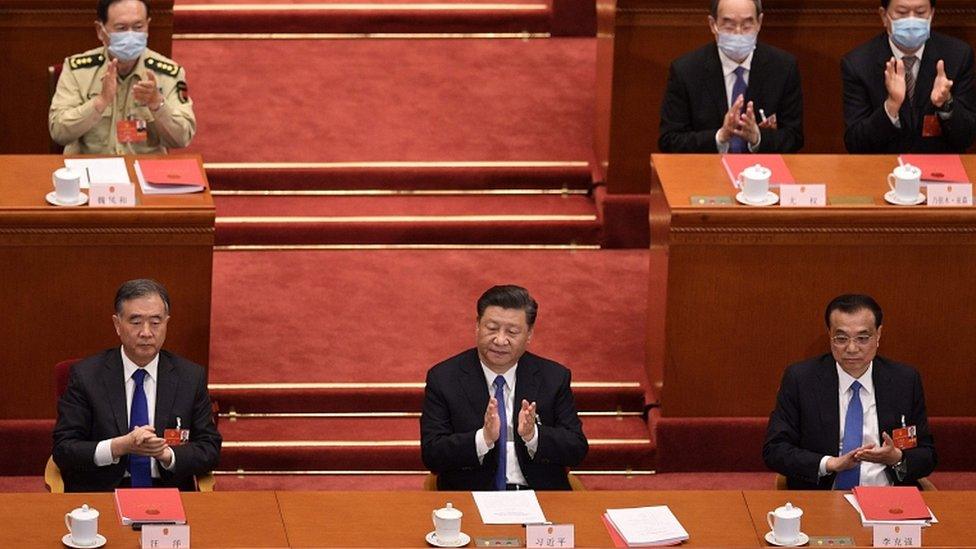
China's President Xi Jinping (front-centre) and other senior figures applauded when the law was passed
China's parliament has backed a new security law for Hong Kong which would make it a crime to undermine China's authority in the territory.
It would make it a crime to disrespect China in Hong Kong, including things like disrespecting the Chinese national anthem.
Lots of protestors are concerned this law will will end Hong Kong's unique status - the very thing making it possible for them to enjoy some of their own freedoms and run the territory themselves.
The view in China can be quite different, however. One young citizen told the BBC last year that he thought, "the young people in Hong Kong look down upon the mainlanders [people in China], and at the same time are afraid of us because they don't want us to overtake them."
How would the law change things?
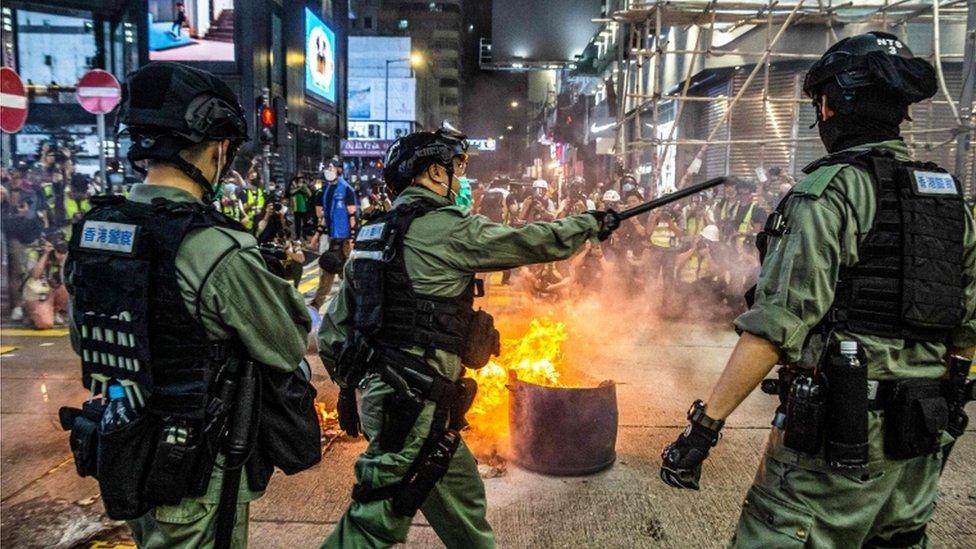
There have already been lots of protests about the idea of the new law
It might mean that China could start doing things in Hong Kong that they've never done before.
For example, many people are worried that Hong Kong's justice system might become more like China's. Something they don't want to happen.
They're worried that they'll be prosecuted for criticising China's leadership or for joining protests.
They're also concerned that any changes to how Hong Kong is run, for example, to make it more like China, might make it less attractive to other countries as a place to do business. People are worried this could damage things like jobs and businesses in the region.
Full details about exactly what behaviour will be outlawed under the new security law are not yet clear.
A spokesman for UK Prime Minister Boris Johnson said the UK was "deeply concerned" about the new security law, which "risks undermining the principle of 'one nations, two systems'".
What happens now?
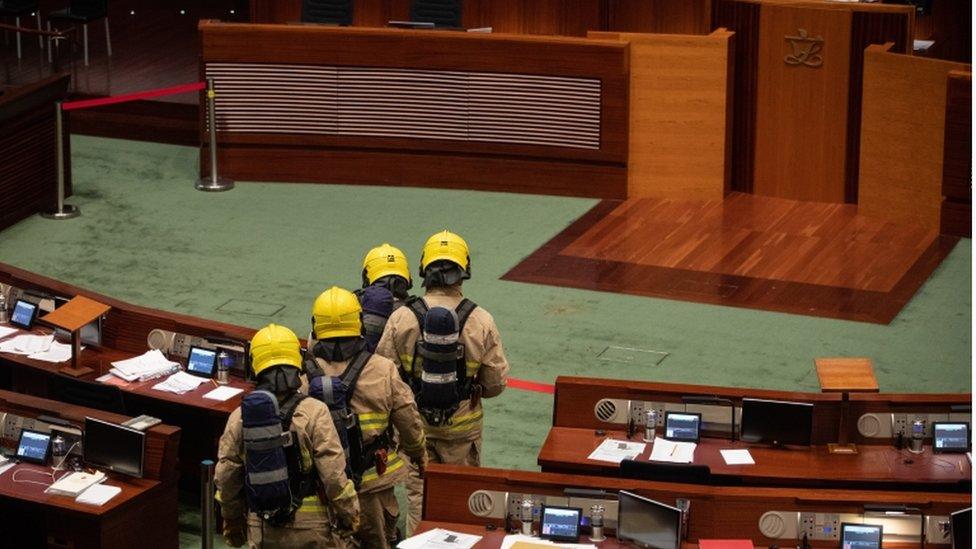
Fire fighters checked the Legislative Council chamber after a lawmaker threw rotting plants on to the floor to protest against the new plans
China's parliament has backed the law, and it's now been passed to China's senior leadership.
China is keen to avoid more mass protests and unrest in Hong Kong like those seen in 2019 but this new security proposed law has got many people in Hong Kong very angry once again.
- Published17 June 2019
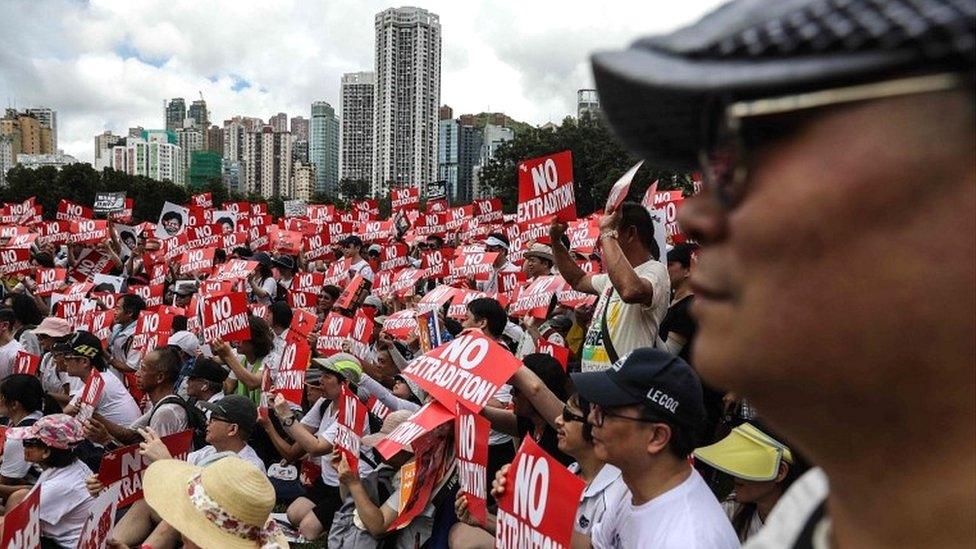
- Published3 July 2019
